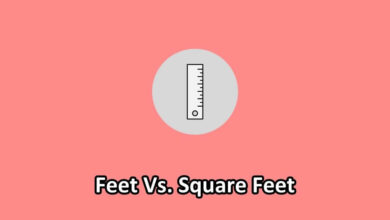Fiction is a type of work in which the portrayal of reality isn’t the author’s main objective. This means that there is no intended adherence to the information or events that have actually transpired. It usually involves some form or degree of fiction, whether it be supernatural, science-fictional, or otherworldly. Nonfiction is composed primarily of facts and information which are presented as true. I have compiled a list of many differences between the two so that it will be easier for you to decide which type of writing you want to pursue. The list of topics is as follows.
What Is Fiction?
Fiction is a story that is not true. It is made up of the author. Fiction can be in many different forms, such as novels, short stories, plays, and movies. Many times, fiction is based on real events or people, but the story is not true. Fiction can really be anything the author makes it. It can take you to another time and place, or it can be about your neighborhood or town.
You should enjoy reading fiction because it will take you on an adventure through someone else’s imagination. A good fiction book is one that starts out in the present day and takes you to a different world and experience. A good example would be Harry Potter, which takes place in England but also has wizardry where wizards fly on brooms and do magic spells. Fiction is mainly divided into four areas;
- Fiction Genres
- Fiction Forms of Fiction
- Style
- Elements of Fiction Genres
What Is Nonfiction?
Most people are familiar with the term “nonfiction,” but they may not be sure what it actually means. Nonfiction is a genre of writing that deals with factual information. This can include anything from history to science to biography. Because nonfiction is based on real events and people, it is sometimes seen as more “serious” than fiction.
However, nonfiction can also be very personal and intimate. memoirs, for example, are a type of nonfiction that tells the story of someone’s life. These books can be just as engaging and page-turning as any work of fiction.
If you’re interested in reading more nonfiction, there are a few things you should keep in mind. First, nonfiction is often divided into subgenres like history, science, or business. This can help you choose a book that’s right for you. Second, don’t be afraid to mix things up! Reading a variety of genres will keep your mind active and help you learn new things.
You Can Also Read: Difference Between Illusion and Hallucination
Fiction Vs Nonfiction – Main Difference
What is the difference between fiction and nonfiction? This is a question that often comes up, especially when people are trying to decide what type of book to read. While there are many differences between the two genres, the main difference is that fiction is made up, while nonfiction is based on real events.
Fiction books are usually stories that the author has made up. They can be about anything, from love stories to adventures. Nonfiction books, on the other hand, are usually based on true events. They can be about anything, from history to biographies.
Fiction Vs Nonfiction(Comparison Table)
The following table compares both fiction vs nonfiction briefly.

Key Differences Between Fiction And Nonfiction
When it comes to reading, there are two main genres that people tend to gravitate toward fiction and nonfiction. Here are six of the most notable key differences between both:
Meaning- Fiction can be viewed as an imaginative fabrication that doesn’t actually exist but is the result of the author’s original ideas. On the other hand, nonfiction denotes a genre of writing that offers accurate information or includes such facts or real-world events.
Purpose- The primary purpose of fiction is entertainment. It is meant to transport readers to another world, one that is usually far removed from their own reality. Nonfiction, on the other hand, is all about informing and educating. While it can also be enjoyable to read, its main goal is to impart knowledge.
Structure- Fiction stories typically follow a traditional plot structure, with a beginning, middle, and end. Nonfiction pieces, on the other hand, often don’t have a defined structure. They may be chronological or organized around a certain theme, but they don’t necessarily have to adhere to a specific format.
Length- Fiction stories can be anywhere from a few pages to hundreds of pages long. Nonfiction books, on the other hand, tend to be shorter in length since they don’t require as much setup or resolution as fictional works do.
Language- Fiction books are often written in an informal, accessible tone. Nonfiction, on the other hand, is written in a formal style with complex sentence structures and vocabulary that may be unfamiliar to inexperienced readers.
Voice- Fictional works are typically narrated in the first person, a more conversational tone that allows readers to connect with and get to know the book’s main character(s). Nonfiction books tend to be written in the third person and use an objective tone as they relay information about their subject matter.
Conclusion
So, the key difference between fiction and nonfiction is that fiction is made up while nonfiction is based on real events. In a nutshell, the main difference between fiction and nonfiction is their subject matter. When deciding what type of book to read, it is important to consider what you are looking to get out of the experience.
If you want to be entertained or escape reality for a while, then fiction is probably your best bet. However, if you are looking to learn something new or gain a different perspective on the world, then nonfiction would be a better choice. Whichever you choose, make sure that you find a book that captivates and engages you so that you can get the most out of the experience.




3 Comments